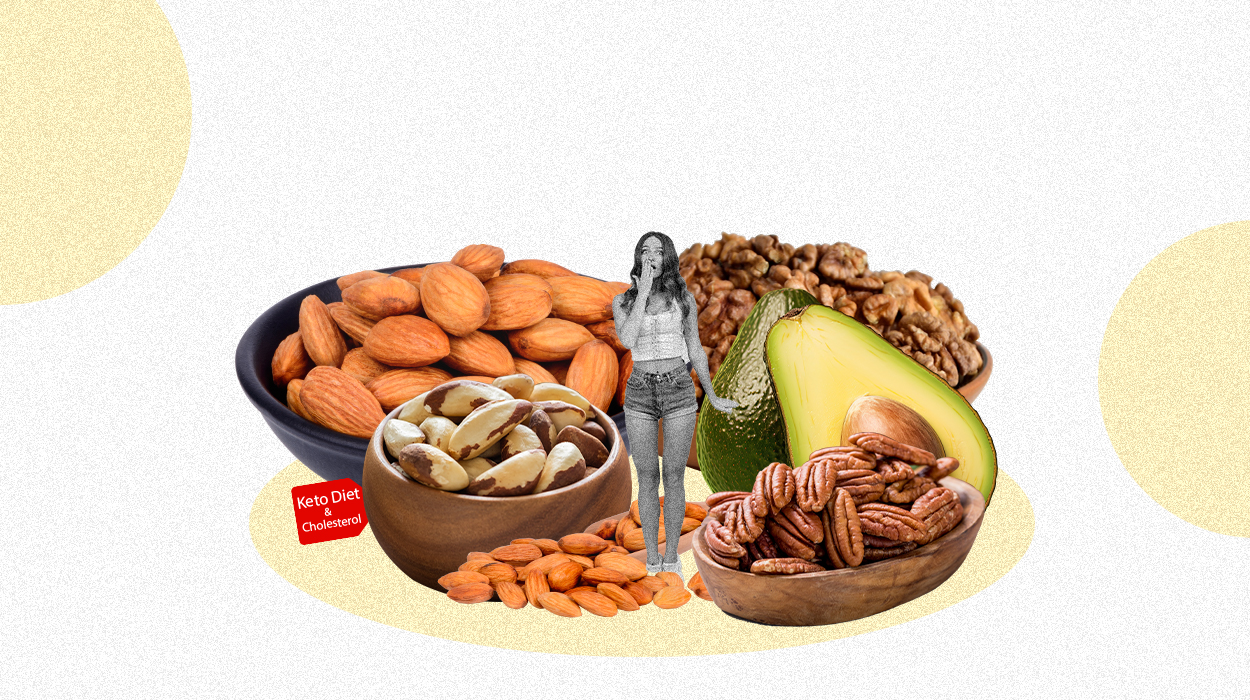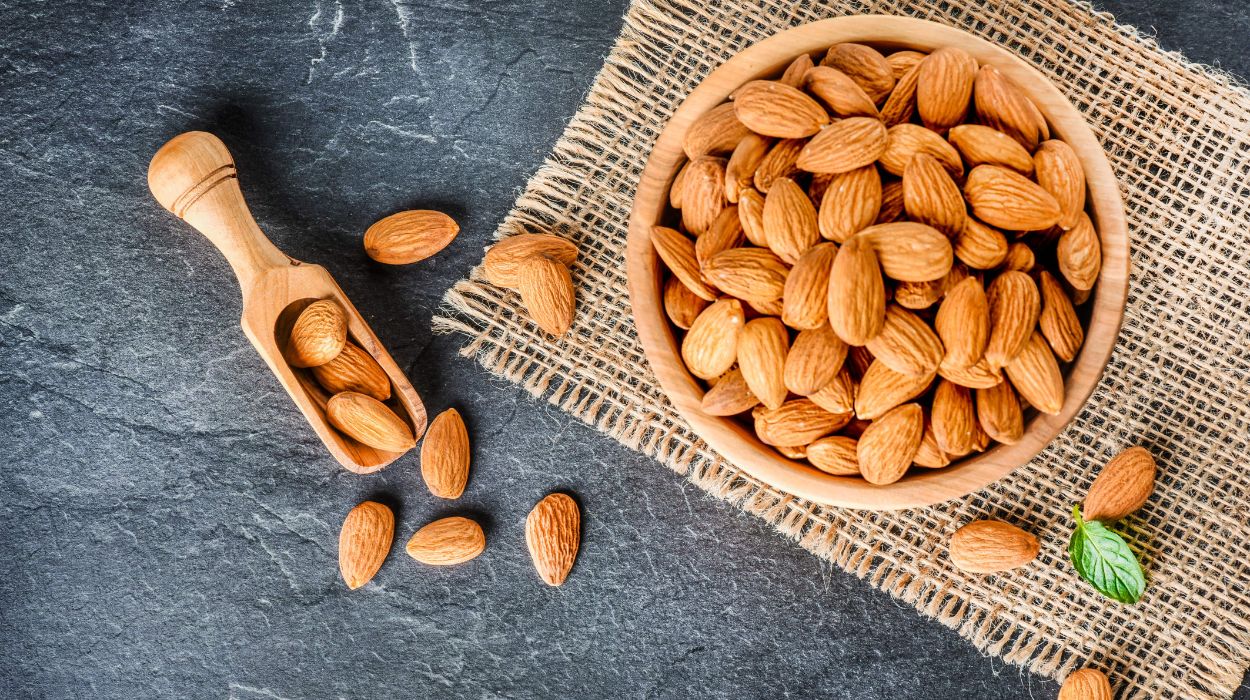 Expert's opinion
Expert's opinion
Expert's opinion
The article is a subjective view on this topic written by writers specializing in medical writing.
It may reflect on a personal journey surrounding struggles with an illness or medical condition, involve product comparisons, diet considerations, or other health-related opinions.
Although the view is entirely that of the writer, it is based on academic experiences and scientific research they have conducted; it is fact-checked by a team of degreed medical experts, and validated by sources attached to the article.
The numbers in parenthesis (1,2,3) will take you to clickable links to related scientific papers.
Keto Diet And Cholesterol 2024: What Is The Impact

The ketogenic diet, which is a low-carb diet that is high in fat, has been lauded as a way to induce weight loss and improve blood tests while eating delicious and satisfying foods. But what is the evidence behind these claims?
In this article you will find a deep dive into the keto diet, how it affects cholesterol, how to make other modifications to your lifestyle to improve your cholesterol while on keto, and whether you should consider going keto if you have high cholesterol.
Keto And Cholesterol: The Effects Of Keto Diet
The keto diet has the potential to increase both “good” and “bad” cholesterol. These findings are based on short-term studies, and more evidence is needed to determine the long-term effect of the keto diet on cholesterol.
There are some changes you can make that may improve your cholesterol even while you stick to a keto eating plan.
Keto Diet And Cholesterol: What Is It?
What Is Keto Diet?
The ketogenic diet was developed as a therapeutic diet for childhood seizure disorders. It was found that a very high-fat diet – traditionally as high as 90% – decreased the frequency of seizures in children with epilepsy and other disorders.
The diet works by inducing a starvation-like state in the body. When you drastically restrict carbohydrates, your body can no longer use them for your immediate fuel needs. After a few days, your body turns to your fat stores for energy.
As part of this process, your body creates ketone bodies, which become the energy source for your tissues and brain.
There is no one ketogenic diet, but rather several variations. The amount of carbohydrate restriction required to cause a state of ketosis can vary from person to person but typically requires a very low carb intake of 20-50 grams per day.
The amount of fat in the diet is typically around 70%, with moderate protein intake making up the rest.
What Is Cholesterol?

Cholesterol is a type of fat. In your body, cholesterol has many important roles including aiding in the synthesis of hormones and digesting the fat you eat. Cholesterol in the body comes from your liver and the animal products you consume.
Your liver makes all the cholesterol you need for the optimal functioning of your cells, so you don’t need to get cholesterol from animal sources. If you do eat animal foods, they will add to your total body load of cholesterol.
In addition, saturated fats found in tropical oils (such as coconut) may also increase your cholesterol levels.
Sometimes doctors talk about “good” and “bad” cholesterol. HDL, or high-density lipoprotein, is “good” cholesterol. Increased HDL cholesterol levels are associated with a decreased risk of cardiovascular disease.
The “bad” cholesterol is LDL or low-density lipoprotein. LDL cholesterol causes an increased risk of heart disease by sticking to the interior lining of your blood vessels, where it accumulates to form plaques. This is commonly referred to as “clogging” the arteries.
Plaques can slow blood flow through blood vessels, causing decreased oxygen delivery to the body tissues. They can also rupture, which causes inflammation and blood clots. This is what happens to the heart muscle in a heart attack and to the brain tissue in an ischemic stroke.
How The Keto Diet Impact Cholesterol?
Ketogenic Diet And Diabetes
It seems that a ketogenic diet may improve glycemic indices[1] in people with Type 2 diabetes. That said, this diet can be difficult to sustain over the long term, and therefore may not be the optimal management strategy for someone dealing with a chronic condition like diabetes.
Furthermore, it’s important to note that people taking diabetes medications may be at risk for low blood sugar on keto. If you have diabetes, be sure to talk to your healthcare provider before starting keto.
Ketogenic Diet Vs. Low Calorie
Keto diets focus on the composition of the diet in terms of macronutrients, whereas a low-calorie diet focuses on limiting the total amount of energy consumed from all macronutrients together. In this sense, the two diets take very different approaches.
Low-calorie diets can vary in quality since they don’t take into account the macro or micronutrient profile of the food list consumed.
For example, 100 calories of raw carrots and 100 calories of ice cream both have 100 calories, even though they have drastically different nutritional profiles. In contrast, the keto diet ensures that you consume a specific amount of fat, protein, and carbohydrates each day.
Keto And Cholesterol
What do keto diet cholesterol levels do within the body? Based on limited evidence, it appears that keto can have beneficial effects on cholesterol in the short term. That said, another study indicated that the keto diet is likely to increase LDL cholesterol after one year on the diet.
This makes sense given what we know about the consumption of saturated fats on LDL levels and the high saturated fat intake of many keto eaters.
More scientific research is needed to determine the long-term effect of keto on cholesterol levels. Current dietary guidelines recommend limiting saturated fats, partly because of how reduced intake of saturated fats can have on cholesterol levels.
If you’d like to try the ketogenic diet, it’s important to know this and communicate early and often with your healthcare provider.
Foods To Consume On The Keto Diet

One way to improve the healthfulness of the keto diet is to include healthy sources of dietary fat. This includes nuts such as almonds and pecans, and healthy plant oils such as olive oil. Avocados are another excellent source of healthy fat.
Berries are a low-glycemic option filled with antioxidants and fiber, which fits well with the low carbohydrate diet. Dark leafy greens, mushrooms, broccoli, and other fibrous vegetables with low net carbs are also excellent choices.
When you’re on a very restrictive diet like keto, it can be difficult to get all of your essential nutrients from the foods you’re eating. You also can want to pick supplements.
Check out this list of the best multivitamins for the keto diet, and you’ll be sure not to miss out on any critical needs.
Macronutrients On The Keto Diet
Of the three macronutrients – carbohydrates, protein, and fat – fat is king when it comes to keto. High fat consumption is what pushes the body into ketosis, allowing it to use fats for energy instead of carbohydrates.
There is no single proportion of fats to proteins and carbohydrates that elicits ketogenesis in every person. Some ketogenic diets allow for more moderate protein intake, or increased carbohydrate consumption on certain days of higher activity.
You may need to experiment with different levels of fat intake or ratios of fats to proteins and carbs to find out what works best for you.
The Way To Lower Cholesterol On Keto
The best way to lower your cholesterol while on a ketogenic diet is to change the composition of the fats you’re consuming. It helps to increase unsaturated fats such as olive oil and omega-3 fatty acids, found in avocados, oily fish, and flaxseed.
You can also decrease trans fat, saturated fat, and dietary cholesterol by reducing your intake of fatty meats, egg yolks, cream, and butter.
Increased fiber will also help you reduce your cholesterol. You can either increase fiber from the fruits and vegetables you choose to eat or take a low-carb fiber supplement. Other lifestyle factors influence your cholesterol as well, such as whether or not you exercise and smoke.
More exercise means lower cholesterol, so include it in your routine. Smoking, on the other hand, is a major contributor to atherosclerotic disease, since it makes your LDL cholesterol even more likely to stick to your blood vessel walls and reduces your beneficial HDL cholesterol levels.
Work with your doctor to kick the habit if you haven’t already.
Is The Keto Good For High Cholesterol?
Does keto cause high cholesterol? It’s important to discuss any dietary plan with your doctor, especially if you have high cholesterol. While the keto diet may have some benefits for controlling cholesterol, there are other, more evidence-based dietary approaches to lowering your cholesterol.
You can always choose to focus on the cholesterol-lowering foods that these diets have in common, though, including fatty fish, nuts, seeds, and avocados.
Conclusion
The ketogenic diet is gaining in popularity and has some promising scientific evidence to suggest that it may help to control chronic conditions while reducing body mass index, but more evidence is needed.
If you’d like to try the ketogenic diet, be sure to emphasize healthy fats and include other lifestyle modifications such as regular exercise and quitting smoking to get the most out of your diet.
+ 1 sources
Health Canal avoids using tertiary references. We have strict sourcing guidelines and rely on peer-reviewed studies, academic researches from medical associations and institutions. To ensure the accuracy of articles in Health Canal, you can read more about the editorial process here
- Kosinski, C. and Jornayvaz, F.R. (2017). Effects of Ketogenic Diets on Cardiovascular Risk Factors: Evidence from Animal and Human Studies. [online] 9(5), pp.517–517. doi:https://doi.org/10.3390/nu9050517.



